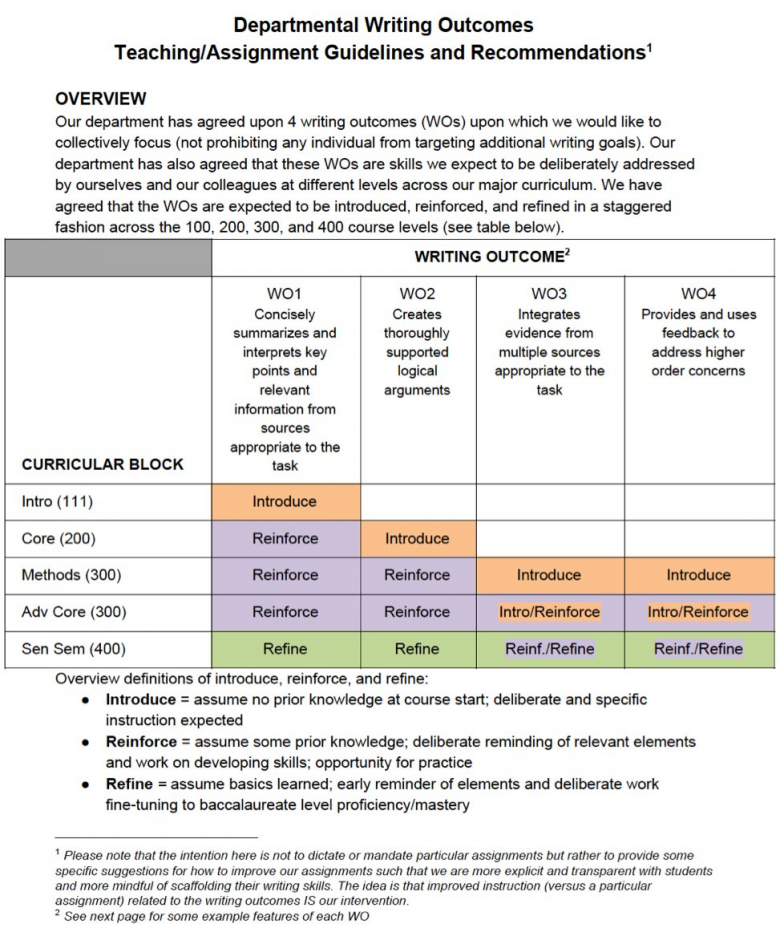The Psychology Department supports faculty as they scaffold writing assignments across their curriculum
This article is one in a series of articles showcasing the successes of Elon’s Writing Excellence Initiative, the university’s five-year Quality Enhancement Plan to enhance the teaching and practice of writing in academic, professional, and co-curricular contexts. The below narrative, a first-hand account by Kim Epting, associate professor, details the Psychology Department’s WEI process, noting their accomplishments and the next steps they plan to take as they continue improving writing instruction and learning for students in their major.
—
The Context
We began as 21 psychological scientists, from a plethora of subfields, sitting around a table trying to agree on what writing in psychology really means and how best to teach it. Our journey carried us to focus on potential benefits to our curriculum, our students, and our individual pedagogical efficiency. Ultimately, there’s little doubt that the Writing Excellence Initiative has led the Psychology Department to spend more time thinking and actively talking about writing with each other and with students.
The Teaching Focus
Early discussions revealed disconnect among what faculty expect, teach, and/or assess in terms of writing skills for our majors. This led to the light-bulb moment. We needed to deliberately design when expected writing outcomes are introduced, reinforced, and refined. As a department, we chose to focus on four writing outcomes that could be introduced across levels of our curriculum (see the figure below). Our collective efforts thus permeate across individual courses and specific assignments and culminate in (hopefully) better ultimate products in our Senior Seminar (PSY 460/461) capstone course and senior research (PSY 499/498) papers.
We developed a department-wide Recommendations Guide that outlines our writing outcomes, shows how they fit in our curricular blocks and provides specific suggestions for creating assignments and instructions that are more explicit and transparent for our students. As a common resource, the Recommendations Guide promotes individual reflection about where one’s course fits in the larger curricular writing goals while also providing prompts for design. It also serves as a springboard for formal and informal discussions.
The Roll-out
Faculty teaching 100- and 200-level courses piloted use of the Recommendations Guide and now all full-time faculty are on board, as our assessment has expanded to all of our regularly offered courses. Additionally, more than 80 percent of our department members participated in an internal workshop in September 2017. Individuals chose which writing outcome they wished to focus on for the workshop based on an assignment (existing or planned) or current writing instruction challenge. Each group discussed the recommendations provided by the Guide for that outcome as they applied to their course, assignment, or challenge. Many faculty members were pleasantly surprised by how valuable the time was and how energized they were to improve their assignments and instruction.
The Next Steps
Faculty will continue to assess the established writing outcomes throughout our curriculum and suggest further additions or refinements to the Recommendations Guide. Feedback from the fall workshop will inform a second, exciting workshop in the spring.


